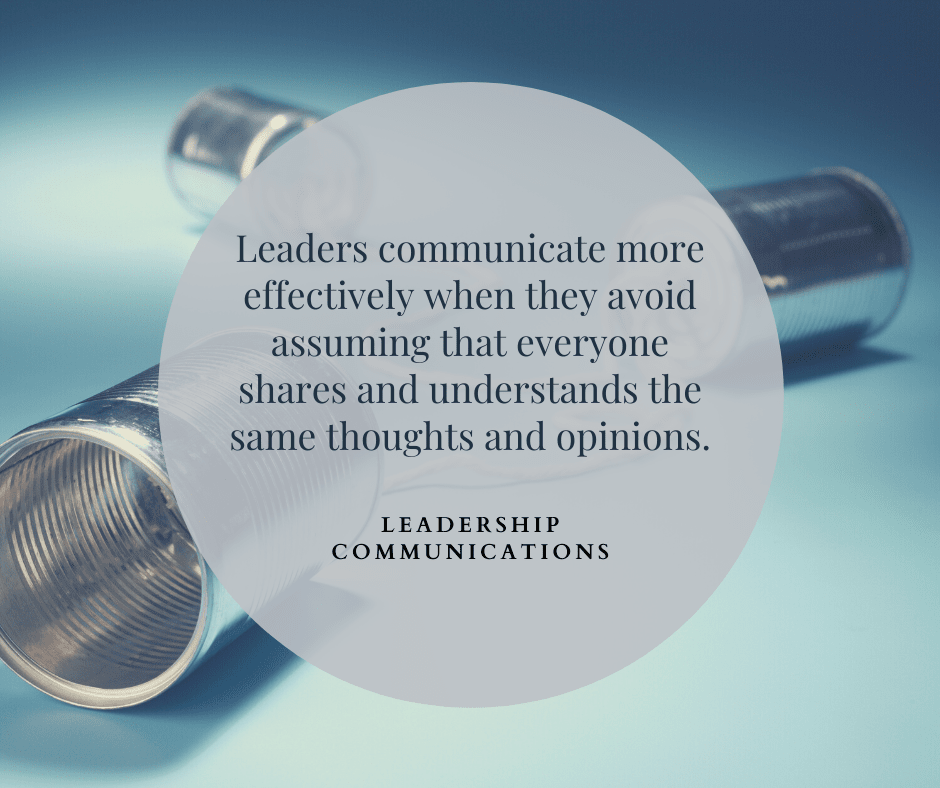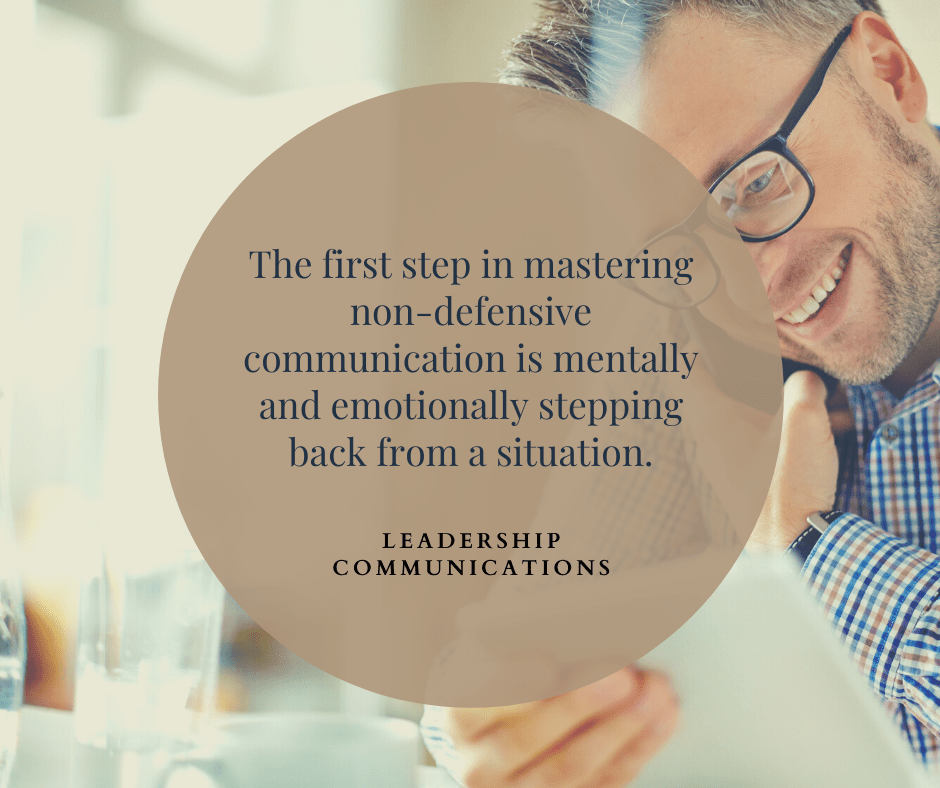
We are going to share essential communication skills for new supervisors, but first we want you to meet Jack – the boss of a fast-paced marketing team. Jack had a habit of interrupting his employees mid-sentence and finishing their thoughts for them. He also tended to send long, confusing emails that left his team scratching. Yet, despite his team’s feedback about his poor communication, Jack thought he was fine.
One day, Jack received an urgent email from a client requesting a last-minute change to a project. Jack quickly fired off an email to his team, instructing them to make the change and send it to the client immediately. But, due to the confusing and vague language in his email, the team misinterpreted his instructions and made a completely different change to the project.
When the client received the updated project, they were livid. They called Jack, demanding an explanation for the mistake. Jack tried to smooth things over, but the client was already considering taking their business elsewhere.
Stories like Jack’s are not uncommon. The largest source of workplace problems is poor communication. How a supervisor communicates with their employees is the difference between an engaged and inspired team and one that is unengaged and resentful. However, many supervisors are uncomfortable communicating with their employees. According to an Interact survey by Harris Poll, 69% of managers reported that they feel uncomfortable communicating with employees.
Grow Emotional Intelligence
Emotional intelligence is like the salt in a dish – it brings out the flavor and makes everything taste better. In the same way, emotional intelligence is a critical component of effective communication. It’s the ability to recognize, understand, and manage our emotions—the secret sauce that sets apart the best supervisors.
By growing emotional intelligence, you can better understand what motivates you to communicate the way you do and how your emotions impact how employees communicate. You become more aware of how you’re feeling and how it influences your words and actions. It’s like having a magic wand that allows you to communicate more clearly, kindly, and effectively.

Practicing emotional intelligence doesn’t mean we become robots who hide our emotions. It’s quite the opposite. People with high emotional intelligence embrace their feelings, understand those feelings, and control how they influence their behavior. It’s like being a master chef who knows how much salt to add to a dish to bring out the flavors without overwhelming them.
- To grow your emotional intelligence:
- Start by considering how others feel.
- Put yourself in their shoes and try to understand their perspective.
- Reflect on your own emotions and how they influence your behavior.
- Develop empathy, like a superpower that allows you to connect with people on a deeper level.
- And last but not least, recognize misunderstandings and take steps to clarify them.
As you continue to hone this skill, you will become not only a better communicator but also a better human being. As a result, you’ll be able to connect with people more authentically, build stronger relationships, and create a more positive work environment.
Make Sure Your Message Matters
Today, people are bombarded with an overwhelming amount of information. From social media notifications to endless emails, it’s easy to feel like you’re drowning in a sea of information. In this environment, ensuring that your message stands out and is worth paying attention to is essential.
To ensure that your communication is effective, honing your message is crucial. You want to ensure your message is accurate, timely, complete, relevant, and clear. Let’s break down each of these components and explore how they contribute to effective communication:
- Accuracy: Your message needs to be factually correct and free of any errors. Inaccurate information can lead to misunderstandings and erode trust with your team. Take the time to fact-check and proofread your message before sending it out.
- Timeliness: Your message must be timely and relevant to the current situation. If your message needs to be updated or relevant, it’s likely to be ignored or dismissed. Consider the timing of your message and whether it’s the best time to deliver it.
- Completeness: Your message must be complete and provide all the necessary information. Incomplete messages can lead to confusion and misunderstandings. Make sure to include all the relevant details and provide context where necessary.
- Relevance: Your message must be relevant to your audience’s needs and interests. They’re likely to tune out if your message doesn’t address their concerns or interests. Consider your audience and tailor your message to their needs and interests.
- Clarity: Your message needs to be straightforward and easy to understand. Confusing or unclear messages can lead to frustration and miscommunication. Use simple and straightforward language and avoid jargon or technical terms unless necessary.
By honing your message and ensuring that it’s accurate, timely, complete, relevant, and clear, you can cut through the noise and ensure your message is heard. But it’s also important to remember that effective communication is a two-way street. So, listen to your team’s feedback and be open to their suggestions for improvement.

Get Your Digital Copy of The Leader’s Guide – a roadmap for your leadership journey.
Finally, sometimes you just need some helpful and practical tips you can implement in right away. That is why we have developed The Leader’s Guide. Get your free copy of The Leader’s Guide today!
Build Trust and Be Transparent
Trust is like the glue that holds a successful team and business together. It’s the foundation of solid relationships, effective communication, and high-performance culture. But trust isn’t something that can be bought or ordered online – it’s earned through honesty, transparency, and integrity.
As a leader, building trust should be one of your top priorities. By being honest and transparent as much as possible, you create an environment that encourages open communication between team members at every level. When you share information and involve your team in decision-making, you empower them to take ownership of their work and contribute to the team’s success.
But building trust goes beyond just being honest and transparent. It also means trusting your employees and giving them autonomy within their roles. By giving your team members the freedom to make decisions and take ownership of their work, you show them that you believe in their abilities and expertise.
In addition, creating a safe environment for giving and receiving feedback is essential to building trust. When your team members feel comfortable sharing their thoughts and ideas without fear of retaliation, you create a culture of open communication and continuous improvement. Feedback should be a two-way street where leaders and team members listen actively and respond constructively.
But building trust isn’t something that happens overnight – it takes time and effort. You need to consistently demonstrate your trustworthiness through your actions and words. You must also be patient and understanding, as building trust is a journey, not a destination.
Practice Non-Defensive Communication
As a supervisor, you may find yourself in challenging situations where you feel criticized or threatened. Of course, it’s natural to want to defend yourself, but reacting defensively can lead to misunderstandings, hurt feelings, and damaged relationships. That’s why mastering the skill of non-defensive communication is crucial for your success.
Non-defensive communication is closely related to emotional intelligence. It’s like having a secret weapon that allows you to stay calm, centered, and objective, even in the face of conflict. By mentally and emotionally stepping back from the situation, you can see it from different perspectives and avoid getting caught up in emotional reactions.
One of the keys to practicing non-defensive communication is depersonalizing the problem. It’s like taking off your armor and seeing the issue objectively. Doing so lets you focus on finding a solution rather than getting defensive and escalating the situation.
To practice non-defensive communication, start by being aware of your emotional reactions. When you feel defensive, take a deep breath and try to step back from the situation. Ask yourself, “What’s really going on here? What are the facts? What are the different perspectives?”
But it’s not just about stepping back – it’s also about stepping into the other person’s shoes. Listening actively and seeking to understand the other person’s perspective is essential for effective communication. By putting yourself in their shoes, you can build empathy, create a more collaborative environment, and ultimately achieve better results. Non-defensive communication is a vital communication skills for new supervisors.

A Course to Improve Communication Skills for New Supervisors
To improve your communication skills, take our short course on Leadership Communications. Whether introducing new directives, setting standards, or pursuing goals, the ability to connect, engage, and convey a message can make all the difference in your success.
In this course, you will learn how to communicate to influence others positively, provide effective feedback, give a professional presentation, and employ active listening.
Listen Actively
Do you ever find yourself hearing someone talk, but not really listening? We’ve all been there. But, as a supervisor, listening is half of the communication process, and active listening is the key to understanding the meaning behind the words.
When you actively listen, you can understand people’s intentions, gain insight into their ideas, and avoid jumping to conclusions. But listening isn’t just about understanding – it’s also about showing respect. By actively listening, you create a culture of respect and open communication in your team.
Unfortunately, there are several barriers to effective listening, including getting hooked on specific words, preparing your answer while the other person is talking, and listening for facts only. To overcome these barriers, you must be intentional about listening actively.
Start by listening with an open mind and asking questions to gain clarity. Reflect on what the other person is saying and paraphrase it back to them to ensure understanding. Finally, agree that you understand the other person’s intent before responding.
By using these strategies, you can begin to build one of the most important communications skills for new supervisors.
Are you a New Supervisor?
Are you feeling overwhelmed by the demands of leadership? Do you find yourself struggling to communicate effectively, build trust with your team, and manage conflict?
At Peregrine Global Services, we understand and that is why we offer a range of solutions to help you succeed in your role.
Our leadership training programs are designed to equip you with the skills you need to lead with confidence. From communication and conflict resolution to emotional intelligence and team building, our training programs cover all the essential elements of effective leadership.
At Peregrine Global Services, we’re here to help you thrive as a new supervisor. Contact us today to learn more about our solutions and take the first step towards becoming the leader you were meant to be.


